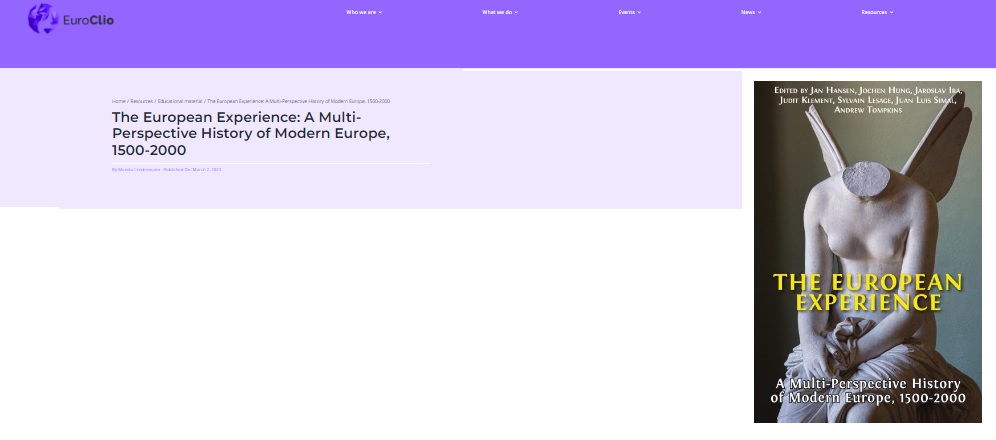img. from Euroclio website
Historiana is an on-line educational multimedia tool curated by Euroclio, the International Association of history teachers and linked to Europeana, the European digital library. Historiana makes available multi-perspective, cross-border and comparative historical sources and storytelling, to supplement history textbooks and other standard materials.
An interesting resource is the narrative Ideas of Europe, sourced from the open access publication “The European Experience, A Multi-Perspective History of Modern Europe, 1500-2000”, as an effort to support teachers introducing students to early modern, modern, and contemporary European history in all its geographic and thematic breadth.
Access the narrative on Historiana
The concept of ‘Europe’, while firmly embedded in everyday images and language, has always been uncertain and imprecise. It has resisted clear-cut definitions, developing through time and acquiring specific meanings in given places and at certain historical moments. But it was during the early modern period that the idea of Europe became more solid and stable in the minds of those inhabiting the region. Acquiring a concrete definition, its inhabitants accepted it as ‘real’ and objectively existing, being mostly defined from within, rather than from without. Even though comparisons with ‘others’ are crucial for self-definition, equally important was the conscious and unconscious search for common traits by those who constructed the image—the concept of Europe.
This Narrative has been developed as part of the project Teaching European History in the 21st Century (TEH21), which is funded by the Erasmus+ programme of the European Union. Together with the narratives on “Borders”, “Migration”, and “Europe’s other(ed)s” it is part of the first unit of the handbook “The European Experience. A Multi-Perspective History of Modern Europe, 1500-2000”. This handbook is one of the outputs of the TEH21 project. As a whole, the unit focuses on the concept of “Identities”.
The content of this Narrative has been authored by: Dirk van Miert, Heike Wieters, Jacco Pekelder, Justine Faure, Károly Halmos, Markéta Křížová, Nere Basabe, Péter Erdősi, Roberto Quirós Rosado, Tonio Schwertner. This narrative has been developed by Alice Modena, Adam Dargiewicz, and Daniel Hoenig at EuroClio.

